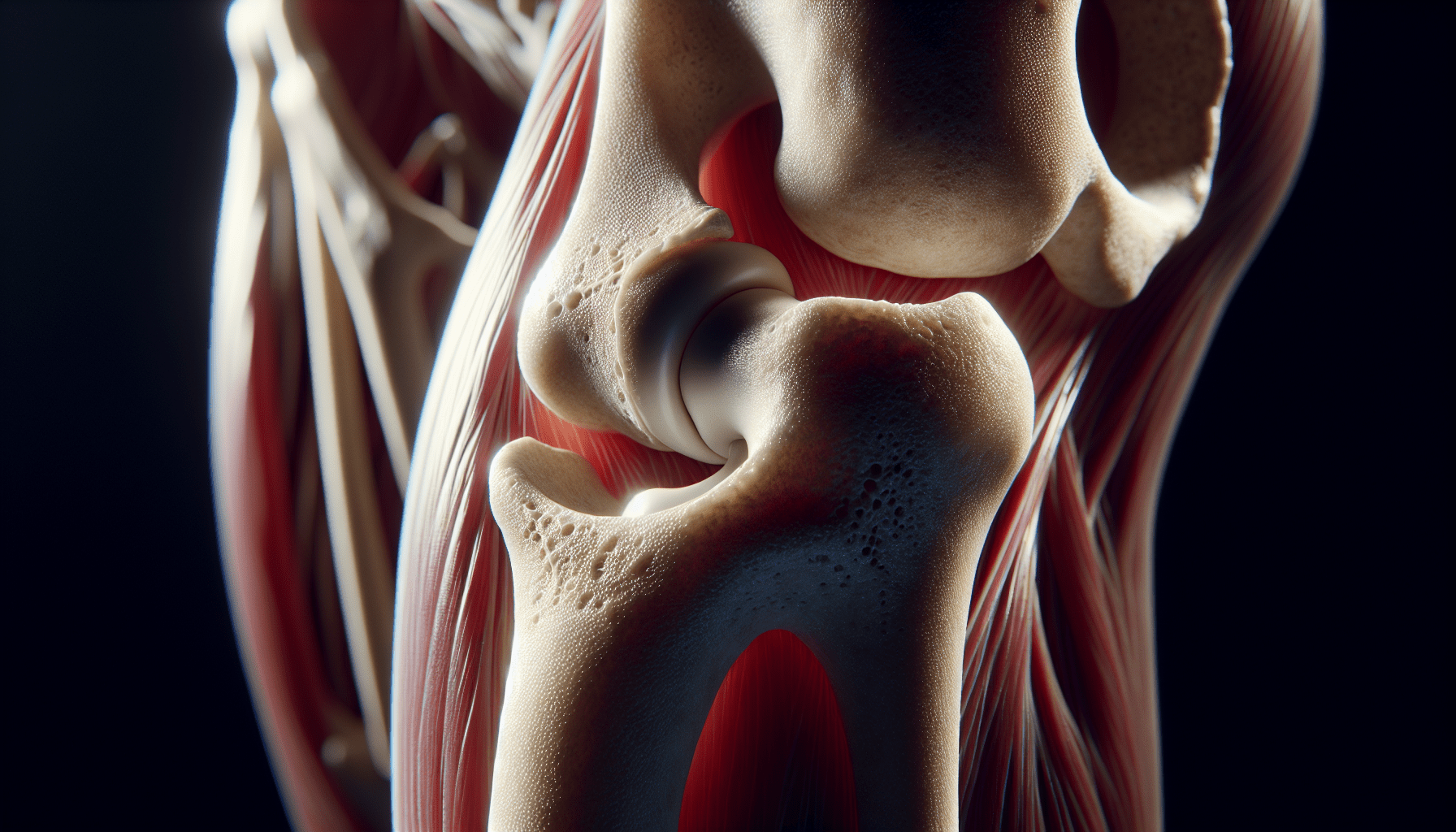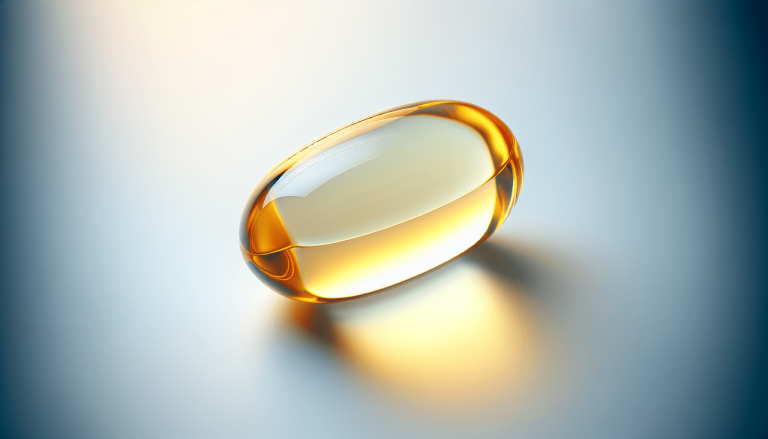How Do You Increase Bone Fluid In Your Joints?
In the article “How Do You Increase Bone Fluid In Your Joints?” you will discover simple, effective ways to boost the fluid that keeps your joints healthy and mobile. From dietary suggestions rich in omega-3 fatty acids to practical exercises like swimming and cycling, you’ll explore a variety of methods to support your joint health. Whether you’re looking to relieve discomfort or simply want to enhance your overall mobility, this guide will provide you with the tips and information you need to take proactive steps towards better joint well-being. Have you ever wondered how you can increase bone fluid in your joints?
Maintaining healthy joints is crucial for an active lifestyle, reducing pain, and preventing long-term damage. Usually, the goal is to increase the synovial fluid in the joints, which acts as a lubricant, reducing friction between the cartilage and other tissues. Now let’s delve into various methods you can use to enhance this essential fluid and keep your joints in tip-top shape!
Understanding Synovial Fluid
First, let’s understand what synovial fluid is and why it’s important.
What is Synovial Fluid?
Synovial fluid is a viscous fluid found in the cavities of synovial joints. It serves as a lubricant to reduce friction between the articular cartilage of synovial joints during movement.
Why is it Important?
The main roles of synovial fluid are to lubricate the joints, absorb shock, and provide nutrients to the cartilage. Without enough synovial fluid, your joints could face increased stress, wear, and pain.
Factors Affecting Bone Fluid in Joints
Several factors can influence the amount of bone fluid in your joints, such as your diet, exercise routine, age, and even genetics.
Age
As you age, your body’s natural production of synovial fluid may decrease, making it essential to find ways to boost it.
Diet
Your diet plays a crucial role in maintaining your joints. A poor diet lacking essential nutrients can lead to insufficient production of synovial fluid.
Physical Activity
Regular movement and exercise can enhance the production of synovial fluid, promoting overall joint health.
Genetics
Some people may have a genetic predisposition to less synovial fluid production. While you can’t change your genetics, you can employ methods to mitigate their impact.

Ways to Increase Bone Fluid in Your Joints
Now that you understand what synovial fluid is and what factors can affect its levels, let’s explore some practical tips to increase it.
Hydration
Staying hydrated can help in maintaining joint lubrication. Water is a vital component, and chronic dehydration can lead to less synovial fluid.
Eat a Balanced Diet
Your diet should include nutrients that promote joint health:
| Nutrient | Sources |
|---|---|
| Omega-3 Fatty Acids | Fish, Flaxseeds, Walnuts |
| Glucosamine | Shellfish shells, Bone Broth |
| Chondroitin | Cartilage, Bone Broth |
| Antioxidants | Fruits, Vegetables |
Exercise
Engaging in regular, moderate exercise can help keep your joints healthy. Activities like walking, swimming, and cycling are particularly good for joint health.
Supplements
Sometimes, diet alone isn’t enough to meet your nutritional requirements. Here are some supplements that can help:
| Supplement | Benefit |
|---|---|
| Fish Oil | Rich in Omega-3 fatty acids |
| Glucosamine | Helps to form and repair cartilage |
| Chondroitin | Reduces joint pain and inflammation |
Maintain a Healthy Weight
Carrying excess weight can put additional stress on your joints, leading to decreased synovial fluid and increased wear and tear.
Avoid Smoking
Smoking can affect the overall health of your joints, reducing the production of synovial fluid.
Get Enough Sleep
Quality sleep is vital for your body’s ability to repair and produce essential fluids, including synovial fluid.
Stay Active, But Avoid Overuse
While regular exercise is essential, overuse can lead to joint wear and tear. Listen to your body and give it time to recover.
Foods That Promote Joint Health
Omega-3 Rich Foods
Omega-3 fatty acids can reduce inflammation and are beneficial for joint health. Include foods like salmon, chia seeds, and walnuts in your diet.
Antioxidant-Rich Foods
Antioxidants combat oxidative stress, promoting overall joint health. Fruits like berries and vegetables like spinach are excellent choices.
Anti-Inflammatory Foods
Chronic inflammation can damage your joints. Include anti-inflammatory foods like turmeric, ginger, and green tea in your diet.
Foods High in Sulfur
Sulfur is important for the production of collagen and other proteins. Foods like onions, garlic, and cruciferous vegetables are good sources.

Supplements for Joint Health
Glucosamine and Chondroitin
Glucosamine and chondroitin are commonly used supplements that help improve joint health by repairing cartilage and increasing synovial fluid.
Fish Oil
Rich in Omega-3 fatty acids, fish oil supplements help reduce inflammation and improve joint lubrication.
MSM (Methylsulfonylmethane)
MSM is known to reduce inflammation and pain while promoting joint health.
Hyaluronic Acid
Hyaluronic acid can attract and retain water in joints, improving lubrication and reducing pain.
Exercises That Can Help
Low-Impact Cardiovascular Exercise
Activities like walking, swimming, and cycling are easy on the joints and promote the production of synovial fluid.
Strength Training
Building muscle strength can support your joints, reducing the strain on them. Focus on exercises that target the muscles around the joints.
Flexibility and Stretching
Stretching exercises like yoga and Pilates can enhance joint flexibility and promote lubrication.
| Exercise | Benefit |
|---|---|
| Swimming | Low-impact, enhances joint lubrication |
| Walking | Easy and accessible, promotes synovial fluid production |
| Yoga | Improves flexibility and reduces joint stress |
Lifestyle Changes for Better Joint Health
Reduce Stress
Chronic stress can negatively affect your overall health, including your joints.
Massage
Regular massage can help improve circulation and promote the production of synovial fluid.
Acupuncture
Acupuncture has been shown to reduce inflammation and improve joint health.
Heat and Cold Therapy
Alternating between heat and cold can help in reducing inflammation and increasing joint fluid.
Medical Interventions
Viscosupplementation
In some cases, doctors may recommend injections of hyaluronic acid to help improve the lubrication of the joints.
Physical Therapy
A physical therapist can guide you through exercises and techniques that can help improve joint health.
Medication
In cases of severe joint issues, medications like anti-inflammatories can temporarily improve joint function.
Natural Remedies
Herbal Supplements
Herbs like turmeric and ginger have natural anti-inflammatory properties and can support joint health.
Bone Broth
Rich in collagen, bone broth can help improve joint lubrication and reduce pain.
Omega-3 Supplements
Omega-3 fatty acid supplements can significantly improve joint health by reducing inflammation and promoting fluid production.
Common Myths
Myth: Only Older People Have Joint Issues
Joint issues can affect people of all ages, especially those who have a poor diet, are overweight, or have a sedentary lifestyle.
Myth: Supplements Alone Can Cure Joint Problems
While beneficial, supplements should be used in conjunction with a balanced diet and regular exercise for the best results.
Myth: Exercise Worsens Joint Pain
Proper exercise can improve joint health. It’s important to choose low-impact and joint-friendly activities.
Frequently Asked Questions
Can Synovial Fluid be Replaced?
While you can’t replace synovial fluid directly, you can increase its production through diet, exercise, and proper hydration.
Is It Safe to Take Joint Supplements Long-Term?
Most joint supplements are safe for long-term use, but it’s always best to consult with a healthcare provider.
How Quickly Can I See Improvement?
Results vary based on several factors, including age, initial joint health, and the methods you’re using. Some people notice improvements within a few weeks, while for others, it may take longer.
Are There Any Side Effects?
Most methods for increasing synovial fluid are safe. However, some supplements may cause side effects like stomach upset or allergic reactions. Always consult a healthcare provider before starting any new supplement.
Conclusion
Improving the synovial fluid in your joints can greatly enhance your quality of life. By adopting a combination of proper diet, regular exercise, and lifestyle changes, you can promote better joint health and mobility. Remember, the sooner you start, the better your chances of maintaining healthy joints as you age. Take charge of your joint health today and enjoy a more active, pain-free life!
Additional Resources

It starts with a little bit of soreness…in your knees, hips, later your back.
You brush it off. You keep thinking “It’s probably nothing”.
Until your joints get worse and stiffer day by day. Suddenly the pain is real. Little by little it makes you a living mess. Sitting down or getting up is an extreme task, loosening your grip, controlling your motions is a nightmare and before you know it…
Discover how easy and simple it is to defeat joint swelling and tenderness.
More than 3,988 cases of chronic pain, mild and severe arthritis have reported that their pain has gone down by 87%, the swelling and stiffness are completely gone and their mobility is back to normal.
>>> It only takes 30 seconds to eliminate joint pain in less than 15 minutes.






